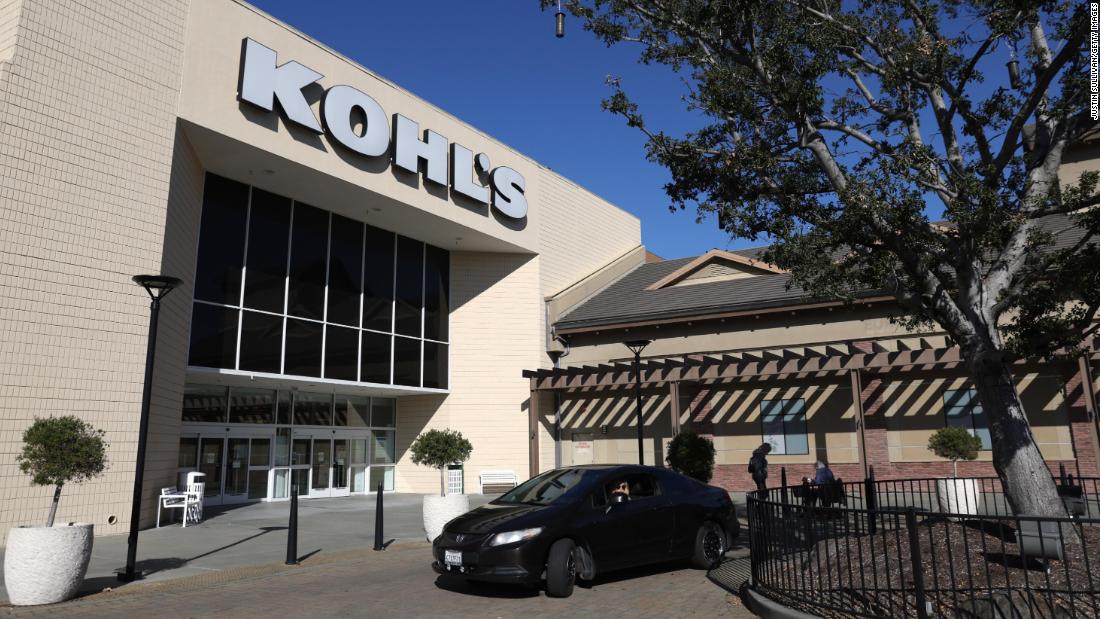How Kohl became such a mess
Not anymore. Kohl’s is in turmoil today.
The chain’s sales are lower than before the pandemic, despite strong consumer spending and as rivals enjoy strong gains. Activist investors surround Kohl’s and demand leadership changes. A sale of the business could be on the horizon.
“We see a company that has gone astray,” said Jonathan Duskin, managing partner at Macellum Advisors, an activist investment firm that became Kohl’s third largest shareholder.
Kohl’s “should do better than Macy’s, not worse,” Duskin said. “We see a lot of initiatives that seem fine, but never really translate to growth.”
In a statement, a spokesperson for Kohl blasted Macellum, saying the company was “using an ill-informed, shifting and hollow narrative” to push for changes that would not improve Kohl and result in “unreliable” directors. skilled and inexperienced”.
The spokesperson said Kohl’s has made “substantial progress in transforming our business and positioning the company for long-term success.”
“We are already delivering results,” the spokesperson added, noting the company’s record earnings in 2021, operating profit margins achieved two years ahead of schedule and an increase in the company’s quarterly dividend.
Kohl’s is trying another makeover to turn things around, but its success is far from guaranteed.
fight the tide
With more than 1,100 stores in the United States and approximately $19 billion in annual sales, Kohl’s is the largest department store chain in the United States.
Department stores, including Kohl’s, have been underpriced by discount players at the bottom and prestige by luxury stores at the top, said John Fisher, a senior lecturer at Boston College’s Carroll School of Management. and former CEO of Saucony running shoes.
“It’s hard to be unique,” Fisher said. “I think Kohl is caught in the act right now by death in the middle.”
“[F]Factors such as consumer migration to the internet and preference for value have contributed to this erosion,” UBS analyst Jay Sole said in a recent report. “This will likely continue after the pandemic.”
These strategies did not lead to major improvements. Kohl’s improved its athleisure business and other areas, but its women’s clothing business slumped.
In 2018, sales increased slightly by 0.7% compared to the previous year. In 2019, they fell 1.2% before plunging 20% in 2020 due to store closures and Covid-19 restrictions.
Last year, after stores reopened and shoppers refreshed their wardrobes, sales rebounded 23%, but that was still below pre-pandemic levels.
Competition has grown fiercer in the four years since the Gass takeover, and “many Kohl stores are feeling weary,” said Neil Saunders, general manager of retail at GlobalData. “It’s been very easy for customers to switch from Kohl’s to others offering something better.”
And brand partnerships with Amazon and Sephora don’t solve the fundamental problems, he added. “Kohl’s should look to improve its own brand rather than relying on others to lift it.”
A sale in sight?
In recent months, activist investors have been pushing for Kohl’s to change.
To combat the pressure, last week Kohl outlined plans for a “complete reinvention of our business model and brand” at an investor day.
Kohl’s said it will add Sephora mini-stores to about 75% of its 1,100 U.S. stores, open 100 new locations at half the size of its traditional outlets over the next four years, and expand its popular program. 7.5% Kohl’s Cash rewards on purchases, from 5%. Kohl’s also unveiled new strategies to grow online, including self-service for pick-up orders and returns.
“We are evolving our position from a department store to a more focused lifestyle concept centered around the active, casual lifestyle,” Gass said in a presentation.
But for Duskin at Macellum Advisors, the plan was “disappointing”.
He thinks the strategy won’t significantly change the way consumers view Kohl’s — and he says it’s time for a new board and, possibly, a new CEO. Kohl’s hasn’t taken full advantage of the fact that its stores are located away from traditional malls, which lose foot traffic, he said, and he wonders if the investment in Sephora is worth it. .
Kohl’s board is in “ongoing dialogue with potential bidders” and will measure any bid against its own “compelling stand-alone plan,” a spokesperson said.
Duskin expects Kohl’s to accept a takeover offer, he said. “This company can easily be turned around.”


Comments are closed.